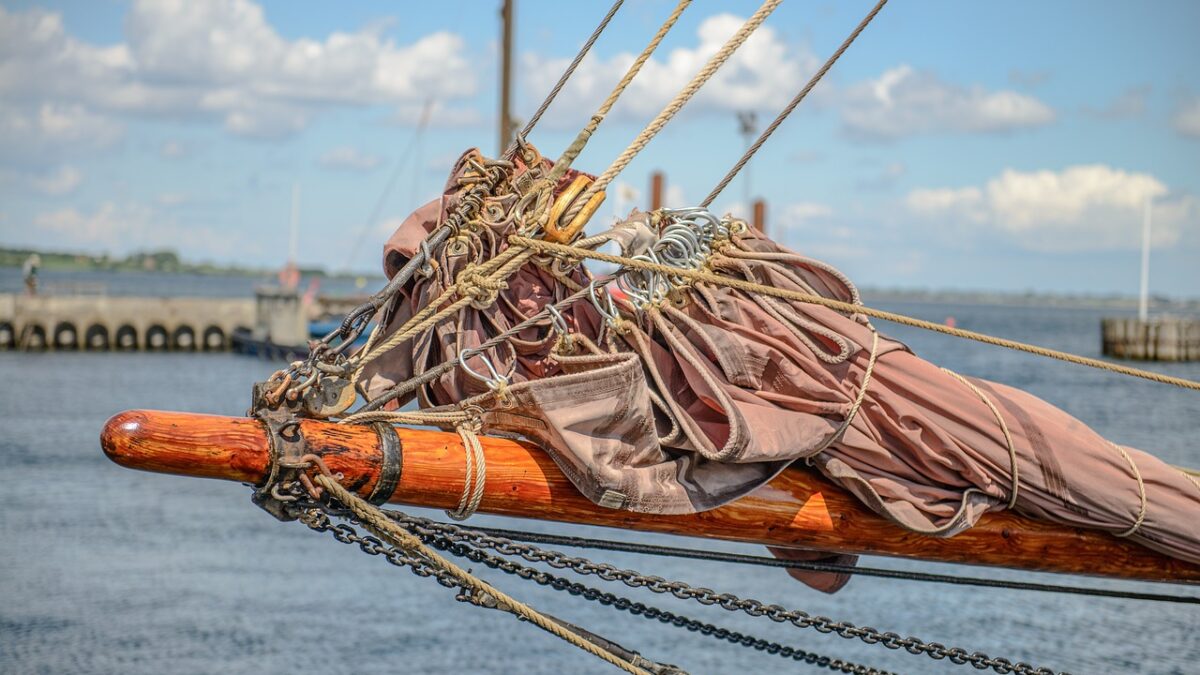
Sanction Wars: The Compliance Strikes Back – UK Sanctions and Legal Risks in the Commercial Space Sector
March 31, 2025
Navigating US Oil Policy Shifts: Global and Commercial Implications of the New Trump Administration
April 4, 2025The judgment was issued on the 17th of January 2024, and the hearing and proceedings were conducted in the UK Supreme Court on the 4th and 5th of October 2023.
Background:
In September 2010, the vessel MT Polar, owned by Herculito Maritime Ltd and others (“the Shipowner“), was chartered by Clearlake Shipping Ltd to transport fuel oil from St. Petersburg to either Fujairah or Singapore. A charterparty, which is a contract between a shipowner and a trader for vessel hire and cargo transport, governed this agreement. On 30 October 2010, Somali pirates seized the vessel in the Gulf of Aden. After being held for 10 months, it was released on 26 August 2011 upon the payment of a US$7,700,000 ransom by the Shipowner.
Following this, the Shipowner declared general average (GA), a maritime principle requiring all parties with financial interests in a voyage—such as cargo owners and shipowners—to proportionally share extraordinary costs incurred to save the vessel and cargo. The GA adjustment determined that US$5,914,560.75 was owed to the Shipowner by Gunvor International BV and others (“the Cargo Interests”).
The Cargo Interests, however, disputed their liability, arguing that their contract under the bills of lading, which serve as receipts for shipped goods and documents of title, exempted them from contributing to GA for the ransom payment. They contended that insurance cover was the Shipowner’s only remedy and refused to contribute to GA, leading to arbitration and appeals.
The voyage charterparty included a war risks clause, making the Cargo Interests, as holders of the bills of lading, responsible for additional insurance premiums when traveling through high-risk zones. The bills of lading incorporated the charterparty terms and referenced GA under the York-Antwerp Rules, a standardized set of maritime regulations governing GA adjustments.
Legal Areas:
The main case referred to was The Evia (No 2). The Evia was chartered in 1979, with a clause requiring employment between “safe” ports. In the Supreme Court proceedings, the Cargo Interests argued that the war risks regime in the charter was similar to The Evia (No 2) and should impose liability for war risk premiums on charterers and bill of lading holders. The Court found that no insurance code or fund existed in the charter and cautioned against broadly applying the reasoning from The Evia (No 2) to charters with different wording. Doing so could introduce uncertainty and complicate legal clarity, particularly regarding subrogation rights.
Proceedings:
Arbitration Tribunal
The tribunal held that the Cargo Interests were not liable to contribute to GA. The Shipowner then appealed the decision.
Commercial Court:
The Commercial Court reached the opposite conclusion by declaring that the Cargo Interests would have to contribute to General Average. The Court considered that the clause which referred to payment of additional premiums, although incorporated into the bill of lading, did not impose liability on the Shipowner, as bill of lading holders. The Cargo Interests appealed the decision.
Court of Appeal:
In the Court of Appeal, the Cargo Interests argued that the Shipowner’s insurance agreement was incorporated into the bills of lading, and that the Shipowner’s agreement to rely exclusively to insurance in the event of detention by pirates was incorporated in the bills of lading for the benefit of the Cargo Interests. However, the Court disagreed, ruling that the bills of lading did not exclude the Cargo Interests’ liability to contribute to GA after a piracy incident, despite the vessel being insured. The Court found that all parties were insured against the risk of piracy and allowing the Shipowner to claim would mean that each set of insurers would bear its proper share of risk which it had agreed to cover. Otherwise, the loss would be borne entirely by the Shipowner’s insurers and the Cargo Interests’ insurers would escape liability for a risk that they had agreed to cover. This resulted in a further appeal by the Cargo Interests to the Supreme Court.
Judgment:
In finding for the Shipowners, the Supreme Court considered four issues to be relevant:
Charter Interpretation and Insurance Fund:
The Shipowner agreed to the vessel’s route through the Gulf of Aden, acknowledging the piracy risk. Neither the Shipowner nor the master could later refuse this risk. In return, the Shipowner agreed to pay an additional premium, obligating the insurers to pay as well. The Court found no joint insurance fund requiring the Shipowner, under the bills of lading terms, to pay war risk premiums, as the obligations were not clearly defined and did not apply, so distinguishing The Evia. The Shipowner’s right to additional freight if the vessel was diverted under clause 39, the War Risks clause, did not address delays in the war risk zone or change the overall position. It reflected the rights to be paid proportionally for additional services provided by the Shipowner outside a war risk context.
Incorporation of Charter Terms in Bills of Lading:
The Court ruled that all material parts of the War Risk clauses in the charter, including provisions regarding piracy in the Gulf of Aden, were incorporated into the bills of lading, making them relevant to the carriage of goods. The Court held:
- The incorporating clause in the bill of lading must be analysed to determine if it is broad enough to prima facie incorporate the relevant term.
- If the incorporating clause is sufficiently broad, the specific term being incorporated must be examined to see if it should be accepted or rejected.
- If the incorporation is prima facie valid, the term must be checked for consistency with the express terms of the bill. If inconsistent, it will be rejected.
Manipulation of Charter Terms:
There was no need to manipulate the wording of the charter’s insurance clauses to apply them to the bills of lading, as the responsibilities for additional premiums were clear and consistent with the terms of the bill of lading. Where specific words of incorporation are used, they are effective to bring about a prima facie incorporation even if the term in question does not relate to shipment, carriage or discharge, and even if some degree of manipulation is required.
Claiming Against Bill of Lading Holders:
The Shipowner was not precluded from claiming against the Cargo Interests, as bill of lading holders, for the ransom, as there was no clause supporting the Cargo Interests’ argument that the Shipowner was acting on their behalf in paying insurance premiums.
Ultimately, the Shipowner’s claim for the ransom payment was upheld and the Cargo Interests were liable to contribute to GA.
Commentary:
The decision emphasizes the importance of clear contract wording in bills of lading, particularly regarding GA rights and insurance contributions. It highlights that:
- General average is a common law right, and there must be clear agreement to waive it.
- An insurance code requires clear agreement and that it was not implied here.
- The ability to manipulate contractual wording is limited.
The case has broader implications for maritime contracts, particularly regarding insurance and liability in piracy-prone areas like the Red Sea. On November 19, 2023, Houthi rebels hijacked the Galaxy Leader cargo ship, taking 25 crew members hostage, with the crew later released in January 2025 during a ceasefire. Meanwhile, on August 24, 2023, Russia’s missile attack on a civilian cargo ship in Ukraine’s Odesa port, following its withdrawal from a UN-backed grain deal, destroyed 280,000 tonnes of grain, impacting global food security and prompting UK condemnation. These incidents underscore the need for clear, enforceable maritime agreements in conflict zones.
Written by Emma Hewins





